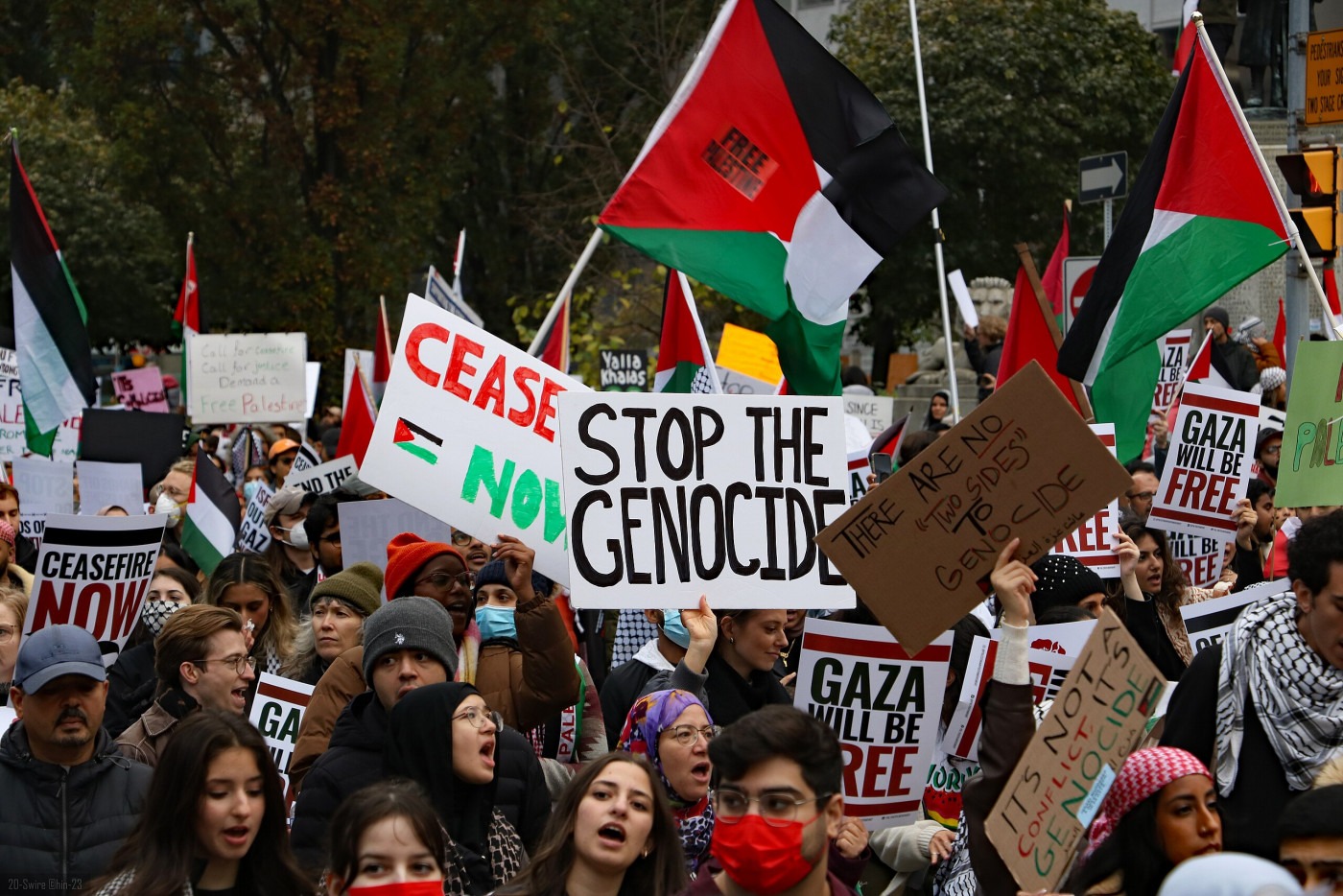University of Cambridge granted legal injunction barring Israel-Palestine demonstrations on campus
Students and activist organisations have expressed anger after the University of Cambridge secured a high-court injunction preventing Israel-Palestine protests on parts of its campus.
The injunction, which lasts four months, comes after the university failed to procure a similar legal blockade for a duration of five years at the High Court last month.
Myriam Stacey KC, for the university, told the High Court there was an imminent risk of further disruptive campus action, emphasising it was the action and “not the viewpoint” that the university was attempting to target.
The group primarily associated with the demonstrations, Cambridge For Palestine, occupied the University’s “financial core”, Greenwich House, in November, demanding the university “divest funds and collaboration away from” “complicit organisations”.
The University of Warwick was subject to similar disruptions to its graduation events […], the result of a march organised by Warwick Stands With Palestine
Cambridge has sought the injunction to prevent protests from occurring during graduation ceremonies.
Last year, demonstrations at Senate Yard “forced” a ceremony to be moved, the High Court heard.
The University of Warwick was subject to similar disruptions to its graduation events and 60th birthday celebrations, the result of a march organised by Warwick Stands With Palestine.
Several organisations have reacted harshly to the injunction.
Ruth Ehrlich, Head of Policy and Campaigns for civil rights pressure group Liberty, suggested the High Court judgement “sets a dangerous precedent”.
The European Legal Support Centre (ESLC) echoed these concerns, adding that the injunction was a “disproportionate infringement” on human rights.
The University and College Union has slammed the court’s decision, with the President of its Cambridge branch, Michael Abberton, expressing concern at the “chilling effect” it would have on “the exercising [of students’] rights to peaceful protest”
ELSC’s Owen Greenhall argued that the university were proactively discriminating against the “race/and or political beliefs” of protestors. The injunction, he suggested, was sought only after pro-Palestinian actions, with other demonstrations such as those supporting Ukraine, being allowed to go ahead.
The University and College Union has slammed the court’s decision, with the President of its Cambridge branch, Michael Abberton, expressing concern at the “chilling effect” it would have on “the exercising [of students’] rights to peaceful protest”.
One Cambridge student, who wished to remain anonymous, told The Boar: “It definitely sets a dangerous precedent, and I think that opinion is shared widely amongst my peers.”
The student recalled an Israel-Palestine protest they attended as being “distinctly peaceful”, adding, “whilst you could certainly hear them, they were assuredly peaceful”.
Another student told The Boar that although they had seen “isolated examples” of the protest disruption, they felt that suppressing the demonstrations “hurt free speech at the University”.

Comments